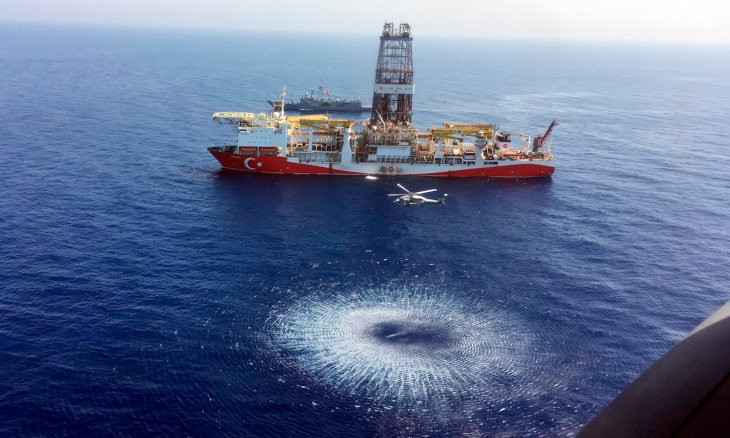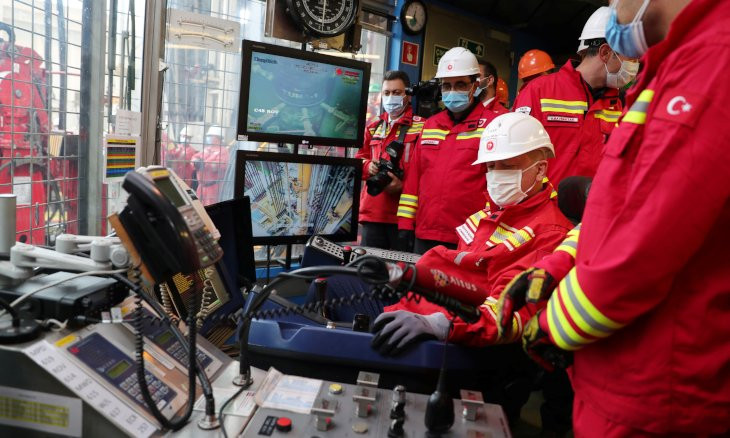Turkey to unveil new natural gas discovery in Black Sea: Bloomberg
The Turkish government is expected to reveal a new natural gas discovery in the Black Sea, financial news giant Bloomberg reported on June 3. Sources told Bloomberg that Turkey's Amasra-1 oil well in the Black Sea had reported data indicating "a significant amount of newly discovered gas."
Duvar English
Financial news giant Bloomberg reported on June 3 that the Turkish government had made new discoveries of further natural gas reserves in the Black Sea and that Ankara was expected to make a public statement on the matter soon.
"Turkey has discovered further deposits of natural gas in the Black Sea, according to people familiar with the matter," Bloomberg reported on June 3.
Bloomberg's sources said that Turkey's Amasra-1 oil well in the Black Sea had reported data indicating "a significant amount of newly discovered gas."
Turkey announced the discovery of 405 billion cubic meters of gas near the Tuna-1 oil well in the Black Sea, marking the largest discovery ever in the body of water.
Ankara has rejected any independent oil audits of the Sakarya region in southwestern Black Sea, Bloomberg noted, adding that the state has maintained that Turkish Petroleum (TPAO) will manage any discoveries without foreign financing.
Turkey's Energy Ministry reportedly refused to comment on the information, although President Recep Tayyip Erdoğan said during the past week that he would deliver good news on June 4.
"He has pitched recent energy finds as a solution to some of Turkey’s long-term economic vulnerabilities, including its energy-import bill that needs to be paid in foreign currency," Bloomberg said, noting that previous announcements about energy in the Black Sea had boosted Turkish assets.
Turkey has ramped up exploration for oil and gas off its coasts in recent years, Bloomberg said, noting Ankara's controversial oil drilling in the Eastern Mediterranean.
Tensions flared between Turkey and EU members Greece and Cyprus over energy resources and jurisdiction in the eastern Mediterranean in August, when both Turkish and Greek navy frigates escorted exploration vessels.
Most recently, Energy Minister Fatih Dönmez said on May 24 that Turkey may drill more boreholes in its search for gas in the eastern Mediterranean despite international conflict over the activity.
EU leaders in March made good on a 2016 promise to deepen trade ties with Turkey, but also warned Ankara to expect sanctions if it restarts energy exploration in the eastern Mediterranean. read more
Delivery from a natural gas reserve in the Black Sea, Turkey's largest historical discovery, is expected to begin in 2023.
If the gas can be commercially extracted, the discovery could transform Turkey's dependence on Russia, Iran and Azerbaijan for energy imports.

 Turkish ship Fatih begins drilling in Black SeaEconomy
Turkish ship Fatih begins drilling in Black SeaEconomy Erdoğan announces more gas reserves find in Black SeaEconomy
Erdoğan announces more gas reserves find in Black SeaEconomy